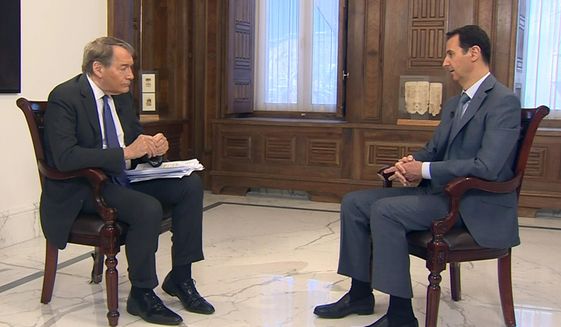April 6, 2015
In late March, Russia facilitated the release of nearly 700 prisoners held by the Assad regime. While Russia’s Foreign Ministry lauded the decision as a confidence building measure designed to demonstrate Assad’s willingness to begin negotiating a political solution, the arbitrary nature of the prisoner release illustrated the serious rule of law concerns that plague detention conditions in Syria.
Principally, the prisoner releases lacked transparency, information on the detainees’ original charges, and details on the legal justification for their amnesty. Instead, the prisoners were used as political ploys by Assad to garner international support while ignoring the many problems plaguing Syrians — particularly the more than 60,900political prisoners who remain in government custody under inhumane conditions.
According to Syrian law, the government can order the release of prisoners through either parliamentary action or presidential decree. In both situations, information about the decision must be disclosed. However, no such procedure was followed in this case, and as a result, Syrians on both sides of the conflict regard the regime’s decision with suspicion. For regime supporters, the prisoner release was baseless because the government failed to provide grounds for why the prisoners were no longer a threat to society.
For regime opponents, there seemed to be little justification for why these prisoners were released while many prominent human rights activists remain in detention, leading to speculation that the released prisoners were nothing more than petty criminals.
Syrian Human Rights Lawyer Michaal Shammas’ comments on the matter:
The prisoner release came as a surprise and without prior notification — it appears that most of those freed are regular civilians and not [political] activists. Maybe — and I repeat, maybe — the prisoner release is related to the upcoming Moscow II conference. All of those freed were released from security branches…none were released by the Terrorism Court, nor from civilian or military prisons. Until now, we have been unable to obtain the names of those freed; in the event we do acquire that information, we will post their names on my personal facebook page.
The military’s actions shortly after the release also cast a shadow over the government’s sincerity. Before retreating from a rebel advance on Idlib, military intelligence officials arbitrarily executed at least 15 prisoners who had been held at the Idlib detention facility. The executions were a gross violation of international criminal and human rights law and signals that the regime does not intend to sincerely pursue reconciliation.
In principle the Syria Justice and Accountability Centre welcomes the release of prisoners as an important component of the transitional justice process, but cautions that such decisions must be transparent and not arbitrary. In Northern Ireland, where prisoner releases were central to the peace process, the Good Friday Agreement providedspecific guidelines on the individuals eligible as well as the justification and conditions of the releases. The provisions explained to society what they could expect, an essential component of citizen buy-in to the reconciliation process. Unless similar protocols are followed for future prisoner releases in Syria, such actions will continue to be viewed with derision by the vast majority of Syrians and fail to fulfill Syria’s need for principled and open justice processes.
A corresponding duty of the Syrian regime is to address ongoing human rights concerns vis-a-vis detentions, including the situation of the tens of thousands not released. The regime is obligated to prosecute detainees still awaiting trial in a fair and timely manner, and release all prisoners held without charge as well as those who have completed their sentences.
Basic human rights principles also require that the regime make information regarding the number of detainees and their status publically available, and allow families, lawyers, and international monitoring groups like the International Committee of the Red Cross (ICRC) to visit detainees and monitor prison conditions.
Finally, confidence building is a fantasy as long as the Assad regime refuses to respond officially to allegations of torture, such as those explicitly documented in the Caesar report, and detail methods of holding officials accused of committing torture accountable.


